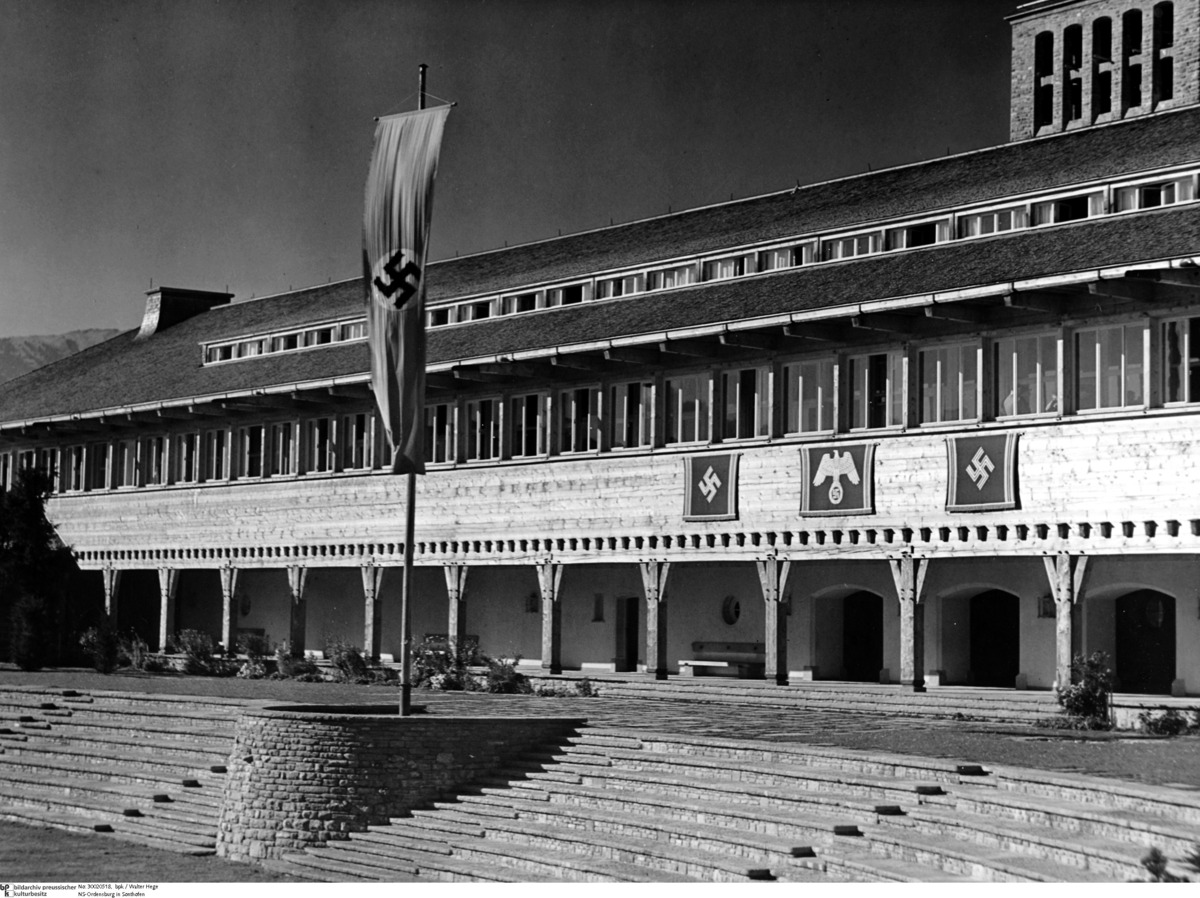Abstract
On January 15, 1937, Reich Youth Leader Baldur von Schirach and the
leader of the German Labor Front, Robert Ley, announced the founding of
“Adolf Hitler Schools.” Like Napolas, these schools aimed to educate the
NSDAP’s next generation of leading functionaries. Unlike Napolas,
however, instruction was free, and the schools were not administered by
the Ministry of Education, but rather solely by the party, in order to
ensure that political instruction would be provided only by party
functionaries. Under the guidance of the Hitler Youth
[Hitler-Jugend or HJ], the curriculum
concentrated almost exclusively on physical and military training.
Students and teachers distinguished themselves chiefly through their low
academic and intellectual abilities. After completing an apprenticeship
or university study, graduates of the Adolf Hitler Schools were supposed
to receive their final political and ideological polishing in so-called
Ordensburgs. Conceived on a medieval model, these institutions were
supposed to train loyal, disciplined administrators. Students were to
spend their first year studying racial biology at the Falkenburg
Ordensburg. The second year was devoted primarily to athletic training
at the Vogelsang Ordensburg. In the third year, students received
additional physical and ideological training at the Allgäuer Ordensburg
in Sonthofen (shown here). Additionally, each year, they were required
to do three months of practical work in party organizations. As was the
case in all other elite National Socialist schools, the students’
intellectual training was almost completely neglected, and the school
day was marked by bullying, intimidation, and violence among the
students.
